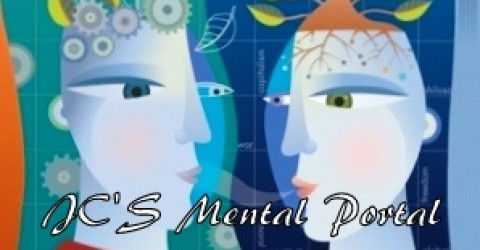My Response to Hugo’s Superconsumerism: http://web.media.mit.edu/~hugo/publications/drafts/Nada8-Liu-Superconsumer.pdf
I want to share this with you because, after reading Hugo’s paper, I realized that I have personally went through the process of cultural perspectivism, in that I was first, to borrow Hugo’s words, the “naïve [cultural] consumer, frustrated and anxious.” But because “[my] spirit[could] not tolerate anxiety and meaninglessness for long,” I have reshaped the American culture that was once my “oppressor into tool” which I now wield it integratively with my other cultures for moment-to-moment, situational purposes. I can do this because I am in tandem the consumer and the owner of multiple cultures and have a diverse range of self-expressive sociolinguistic mediums; I can never be mainstreamed into only one culture; I thus believe that I have found what Hugo calls one’s “niche culture” composed of rich cultural languages and authority.
I think this is what Hugo means by a “superconsumer” a postmodernist of auto-culture, a person of credible (authoritative) culture amidst an “in-credible culture,” a concept and a reality that emerges in stages as one travels this journey of cultural transformations from being naïve to superconsumer (which I do not totally agree; I think some will get stuck in this journey, forever xenophobic if not, in Hugo’s term, an incorrigibly “passive consumer”).
If I may reiterate Hugo to make sure that I am understanding his continuum of cultural evolvement: 1) Strauss & Derrida’s (1966) two primal models: a “bricoleur,” a cultural hero, opportunist, and critic who uses one culture to undermine another and his/her antithetical counterpart, an “engineer,” a cultural fool who is one-dimensional and submissive to authority; then 2) Jameson’s (1991) “intertextualist,” a culturally unsettled, faint vestige of globalism who is unduly influenced by and thus desensitized to milliard cultural propagandas; and 3) Bhabha’s (1994) biculturalist who, rather than being desensitized, by negotiating and contesting the bipolar cultures of one’s motherland and the host country has carved out a transcendent space of beyond in a conjoining sense; and ultimately, which brings us back to 4) Hugo’s (2006) superconsumer, an emblem of self-constructed culture which one is not born into ethnically/geographically but willfully and optimistically self-fashioned by utilizing/reconfiguring contaminated (or dumbed down) original cultures in the age of hyperglobalisation.
Now, what I don’t understand is Hugo’s paradoxical concept of simultaneously submitting one’s self to a controller and yet controlling the controller. Help me with this, please. At the same time, I find Hugo’s “poetics of three critical experiences” simply exquisite! I agree 1000% and appreciate his graphic representations of his dense, potentially confusing theory.
